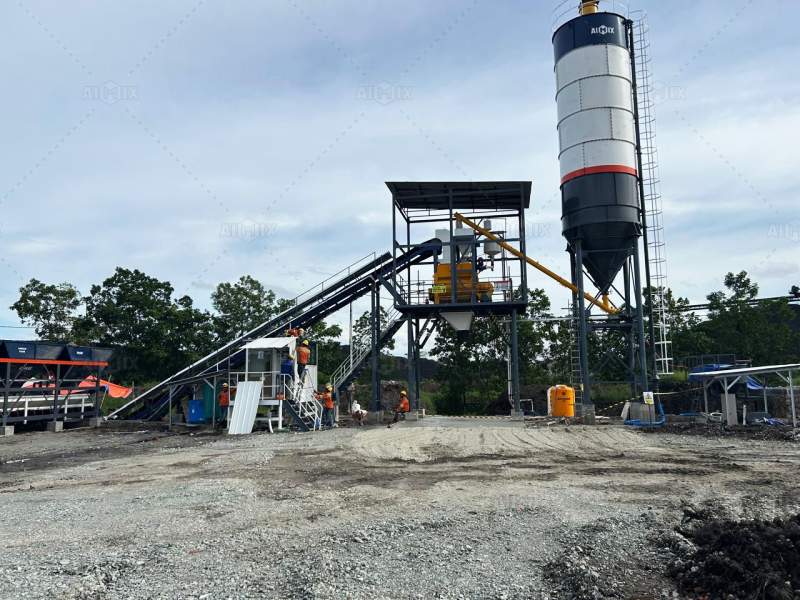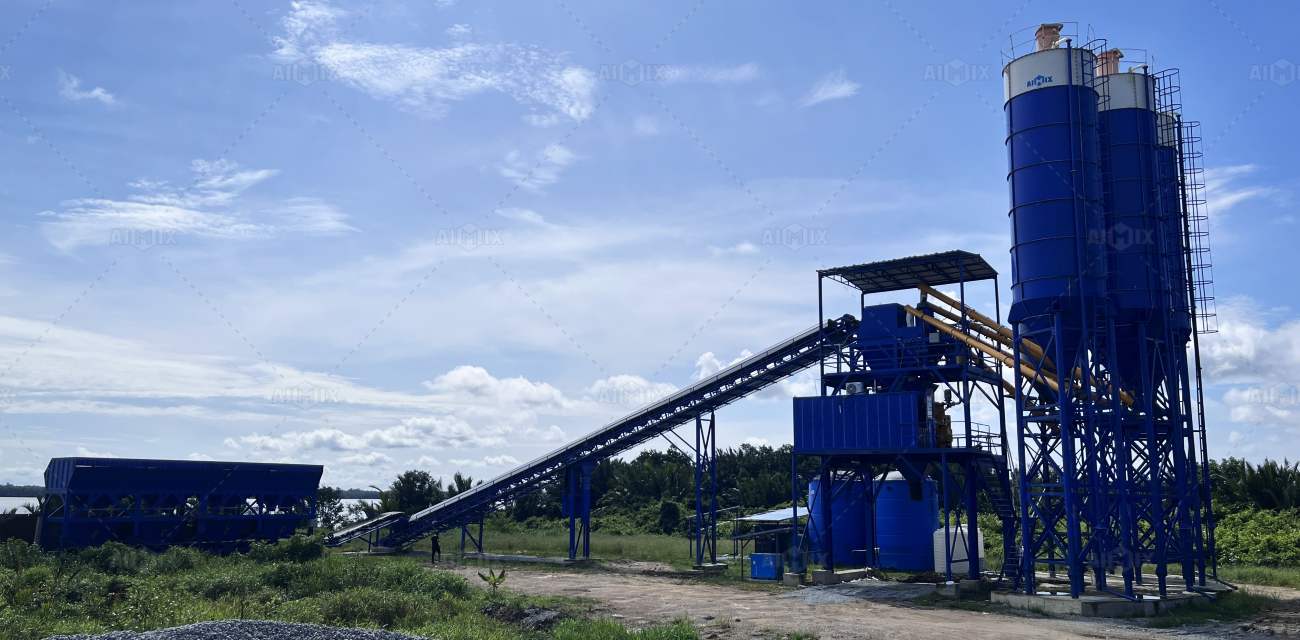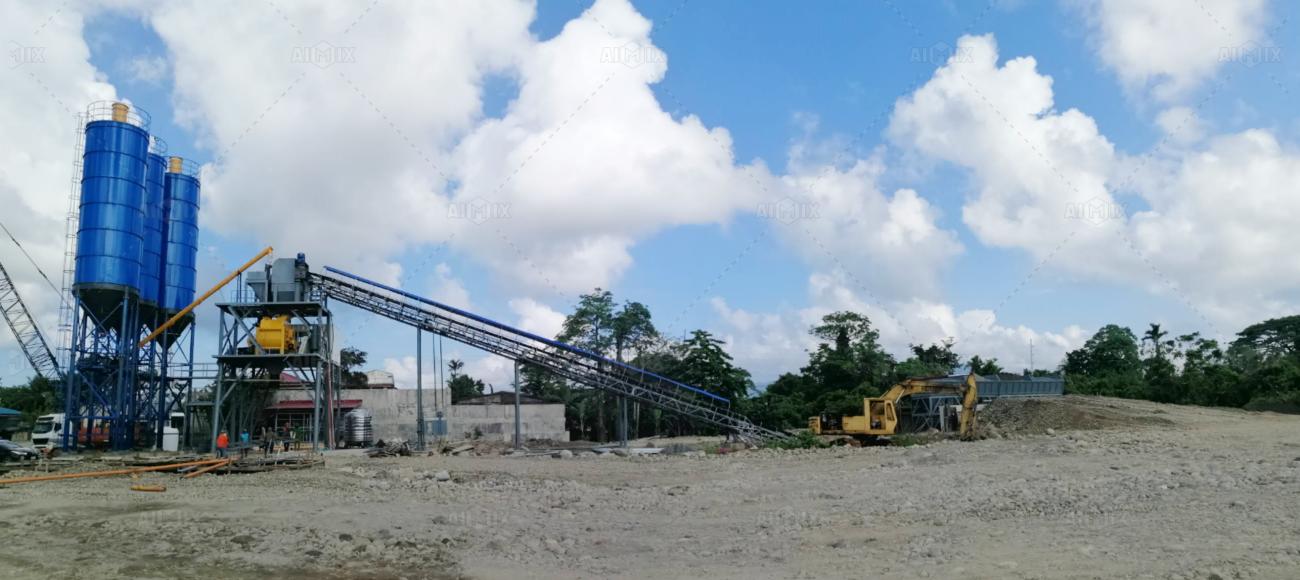The Middle East, known for its rapid urbanization, large-scale infrastructure projects, and unique climate conditions, is one of the most dynamic regions for the concrete industry. From high-rise commercial towers in Dubai to energy and transportation infrastructure in Saudi Arabia and Qatar, the demand for high-quality concrete is booming. As such, many contractors and developers are actively searching for a reliable concrete plant for sale in the Middle East—one that is tailored to extreme heat, dust, and strict local construction regulations.
This article explores what makes a concrete batching plant suitable for the Middle Eastern environment, how local compliance requirements shape plant selection, and what to look for in trusted concrete batching plant suppliers in the region.

Unique Climate Challenges in the Middle East
Before investing in a concrete plant for sale, it’s crucial to understand the region’s environmental challenges and how they affect batching plant operations.
1. Extreme Temperatures
Middle Eastern countries often experience temperatures exceeding 45°C (113°F), particularly in the summer months. These conditions can:
-
Accelerate cement hydration if not properly controlled
-
Overheat motors and electrical components
-
Cause aggregate moisture levels to fluctuate rapidly
2. Dust & Sand
Open desert areas and construction sites frequently deal with high dust levels, which can:
-
Damage control panels, sensors, and motors
-
Clog filters and pipes
-
Reduce the efficiency of air compressors and weighing systems
3. Water Scarcity
Water is a precious resource in many parts of the Middle East. Concrete batching systems must therefore:
-
Use efficient water dosing and recycling systems
-
Offer optional cooling features like ice flakes or chilled water integration
Regulations and Certification Requirements
To legally operate a concrete batching plant in the Middle East, especially in countries like the UAE, Saudi Arabia, and Qatar, compliance with local construction standards and environmental laws is essential.
Key Regulatory Considerations:
-
Environmental permits: Plants must include dust control measures like bag filters and enclosed conveyors.
-
Noise regulations: Sound-dampening enclosures may be required for mixers and motors.
-
ISO & CE certification: Most government and private tenders demand compliance with recognized international quality and safety standards.
-
Local civil defense approvals: Fire safety and emergency shutdown systems are mandatory in many urban projects.
When looking for a concrete plant for sale in the Middle East, buyers must ensure the equipment meets both national and municipal requirements.
Features to Look for in a Middle East-Ready Concrete Plant
A reliable concrete batching plant must be robust, low-maintenance, and energy-efficient to cope with the local challenges. Here are some of the most critical features to consider:
| Feature | Importance |
|---|---|
| Thermal-Protected Motors | Prevents overheating under extreme ambient temperatures |
| Dustproof Control Cabinets | Extends system life and reduces maintenance |
| Ice Flake or Chilled Water Systems | Helps control concrete temperature during mixing |
| Modular & Compact Designs | Easy transport and setup in desert locations |
| Remote Monitoring | Enables operators to monitor plant performance without constant exposure to heat |
Leading concrete batching plant suppliers now offer these features as standard or optional upgrades, depending on the market.

Concrete Plant Types in Demand
The Middle Eastern market demands various types of concrete plants depending on the project scale and location.
1. Stationary Concrete Plants
Ideal for long-term infrastructure and high-volume concrete needs, such as:
-
Airports
-
Metro stations
-
Power plants
2. Mobile Concrete Plants
These are in high demand for desert or oilfield projects where mobility is essential. They can be quickly relocated and installed on rough terrain.
3. Compact & Containerized Plants
Perfect for urban construction with space constraints. These plants are pre-wired, pre-installed, and minimize foundation requirements.
Choosing Reliable Concrete Batching Plant Suppliers
Selecting the right supplier can make or break your investment. Top concrete batching plant suppliers should offer more than just machinery—they should provide technical guidance, installation support, and after-sales service tailored to Middle Eastern conditions.
What to Look For in a Supplier:
-
Regional experience: Suppliers who have successfully installed plants in Saudi Arabia, UAE, Oman, etc.
-
On-site installation & commissioning: Especially important for remote locations.
-
Spare parts availability: Fast delivery to minimize downtime.
-
Training & support: To ensure your team can operate the plant efficiently under harsh conditions.
Some well-established international suppliers like Aimix, ELKON, MEKA, and Liebherr have dedicated experience in Middle Eastern markets and understand the nuances of operating in desert climates.
Concrete Plant for Sale: Price Factors in the Middle East
The price of a concrete batching plant in the Middle East is influenced by multiple factors:
-
Capacity: Higher capacity plants (90–120 m³/h) command higher prices.
-
Configuration: Fully automatic plants with twin-shaft mixers and advanced control systems are more expensive.
-
Climate adaptations: Additional cooling and dust-proofing systems raise the price.
-
Shipping and customs: Import duties and transportation from China or Europe affect total costs.
On average, a high-performance stationary plant (90 m³/h) adapted for desert use ranges from USD 80,000 to USD 200,000, depending on brand and features.

Final Thoughts
The Middle East’s demanding climate and tight regulatory environment make it critical to choose the right concrete plant for sale—one that balances reliability, efficiency, and compliance. Whether you’re building in the heart of Riyadh or the deserts of Abu Dhabi, investing in a purpose-built plant from experienced concrete batching plant suppliers ensures long-term performance and safety.
A smart investment today can result in decades of trouble-free operation and consistent, high-quality concrete for your projects.